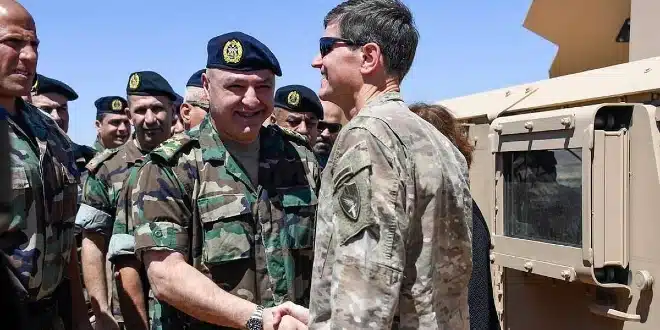A Lebanese parliamentarian with established connections to U.S. officials has recently conducted meetings in Washington, aiming to address American positions on the sensitive issue of disarming Lebanon’s armed resistance factions. The diplomatic outreach was reportedly coordinated with both Lebanese President Joseph Aoun and Parliament Speaker Nabih Berri.
According to informed political sources, the MP used the visit to highlight the potential risks that could arise from applying external pressure on Lebanon to dismantle its resistance forces, particularly Hezbollah. The message emphasized the importance of pursuing a locally driven solution rather than one imposed from abroad, warning that any coercive moves could destabilize the fragile political and social balance within the country.
Focus on Internal Dialogue as a Preferred Path
During discussions with American officials, the MP underscored President Aoun’s position that resolving the issue of armed resistance should emerge from national dialogue rather than international dictates. The parliamentarian reportedly referenced recent preliminary talks between MP Mohammad Raad, who leads the Loyalty to the Resistance bloc in Parliament, and Mohammad Obeid, a former senior information official with close ties to Aoun. These discussions were presented as an early stage in what could become a broader Lebanese-led process to address long-standing concerns regarding weapons outside state control.
The communication reportedly contributed to a more flexible stance among U.S. policymakers. Political sources suggested that there has been a noticeable shift in tone in Washington, with greater receptiveness to the view held by officials in Baabda Palace. Some observers have linked this shift to recent changes in the U.S. diplomatic team, including the reported removal of Morgan Ortagus from her position as Deputy Special Envoy for the Middle East. While no official statement has confirmed the rationale behind that personnel move, speculation among Lebanese political circles ties it to evolving American perceptions of Lebanon’s internal dynamics.
The meetings come amid heightened regional tensions and ongoing concerns over Hezbollah’s role in Lebanon’s defense posture, particularly along the southern border. Western governments, especially the United States, have long pressured Beirut to limit the influence and military capacity of groups not integrated into the official Lebanese Armed Forces. However, Lebanese officials continue to argue that any disarmament process must be carefully negotiated within Lebanon’s political system and not dictated through external leverage.


